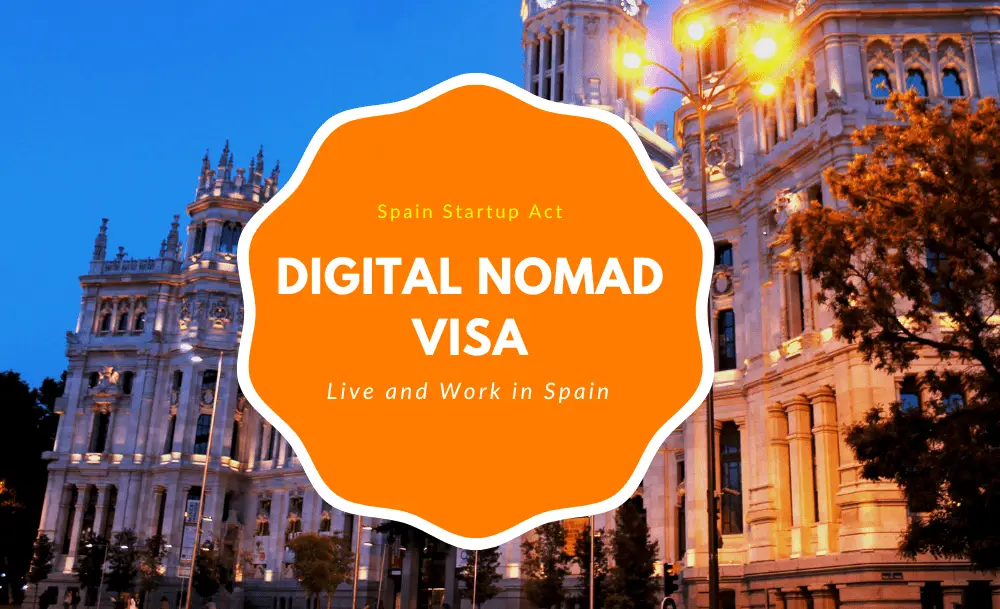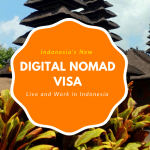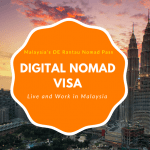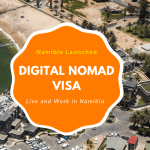Spain Plans To Issue A Digital Nomad Visa

The Spanish government pushed its plan to offer a digital nomad visa. It was finally pushed through on 03 November 2022 and is termed the Ley de Startups (or Startups Laws). This included provisions for Digital Nomads.
This new visa aims to encourage non-European Union (EU) citizens to come to the country and enjoy working in the sun. The law is yet to be passed but the Spanish government is intending to offer lucrative incentives to make the proposal all the more enticing.
Countries across Europe are luring remote workers with visas to boost tourism.
Reportedly, the digital nomad visa will be offered to those who are self-employed or working remotely, or employed by non-Spanish companies. The applicants will need to be from outside the European Economic Area and work remotely for foreign companies and claim a maximum of 20% of their monthly income from Spanish business.
Qualified applicants should be able to furnish a contract of employment to demonstrate they have been working remotely for at least a year. Anyone wanting to take advantage of the digital nomad scheme will have to prove that they earn enough money to be self-sufficient and will need an address inside of the country.
Related articles:
- Spain Extends Covid Travel Restrictions for Non-EU Visitors
- UK Holidaymakers: What You Need To Know When Travelling To Spain in 2022
- EU Proposes Digital Schengen Visa Process
- Malaysia Rolls Out Digital Nomad Pass
- Italy Opens Doors To Remote Workers And Digital Nomads
- Digital Nomads Visa: New Residence Permit For Digital Nomads in Hungary
- Croatia Officially Launches Digital Nomad Visa
- Digital Nomad Visas: 13 and More Options For Remote Workers
How It Will Work
While the more intricate details are yet to be hammered out, the Spanish government is expected to grant a residency permit for a year, which can be renewed for up to five years, depending on the applicant's record.
Spouses or children will also be eligible to join the applicant.
Additionally, for the initial four years, the individual will receive a 10 percent relaxation in the taxation scheme. According to Spanish media reports, the new residents will be taxed at 15 percent, compared to the standard 25 percent rate.
This particular visa scheme will come under the proposed ‘Startup Act'. The main aim of the Startup Act is to develop a thriving ‘startup ecosystem' in Spain and simultaneously, make it a premier destination for entrepreneurs.
If the Spanish government does come up with the planned proposal, it will join the list of European countries such as Croatia, Estonia, and Hungary to have issued some version of digital nomad visa.
While the aforementioned countries have a minimum earning requirement, the Spanish government has not given any indication of adding such a caveat yet.
Countries around the world are rushing to introduce these types of travel permits to attract highly skilled travellers that can contribute to their economies. These types of working travellers tend to be talented and highly skilled. Spain and other countries have decided to introduce digital nomad visas in order to attract and retain these talented and highly skilled individuals.

What is a Digital Nomad?
A digital nomad is someone that is able to work remotely and enjoy travelling the world or to various places at the same time. Thereby they are free to enjoy a life travelling across the globe. Digital nomads often work online and do not have a traditional office job, which allows them to live and work from anywhere in the world. They tend to work as freelancers, entrepreneurs, or employees for companies that allow remote work.
The digital nomad lifestyle has become increasingly popular in recent years, due to technological advances that make it easier to stay connected and work remotely. It has really gained momentum since the coronavirus pandemic as many people stayed and worked from home. This allowed companies to become more lenient on WFH (work from home) and working remotely anywhere in the world.
Digital nomads tend to choose this lifestyle because it allows them to explore new places, experience different cultures, and have more control over their work and personal lives.
But being a digital nomad also comes with its own set of challenges. The biggest hurdle is to find reliable internet or telephony connectivity and a place to work while travelling if you are not happy to work from your accommodation. It can also be challenging to balance work and personal life while on the go. Digital nomads also need to be self-motivated and organised, as they do not have the same support systems and structures that traditional office jobs provide.
To be a successful digital nomad, it is important to have a clear plan for your work and travel. This may include setting goals and deadlines, creating a budget, and finding ways to stay productive and connected while on the go. It is also important to research the best places to live and work as a digital nomad, as different countries have different laws and regulations about work visas and remote work.
Overall, the digital nomad lifestyle offers a unique and exciting way to work and travel at the same time. It is a great option for those who are adventurous, independent and looking for more flexibility and freedom in their professional and personal lives.
What is a Digital Nomad Visa?
Following on from the above, a digital nomad visa is a type of visa that allows individuals to live and work remotely in a specific country while travelling. These visas are often designed specifically for individuals who work remotely from their company or business. Digital nomad visas are usually available to individuals that can demonstrate a source of income, such as through freelance work or running a business online. Some countries offer digital nomad visas on a trial basis, while others have established permanent programs.
Digital nomad visas can vary in terms of the length of stay, permitted types of work, and the requirements to be met. Some countries require digital nomads to have a certain level of income or type of work contract. Other countries may have more relaxed requirements and allow individuals to apply for a digital nomad visa without demonstrating a specific income source.
It is important to note that digital nomad visas are different from tourist visas, as they allow individuals to live and work in a country for an extended period of time. Whereas with a visit or even business visit visas, you cannot work at all or are limited to work of the type of business meetings. It is therefore important to research the specific requirements and restrictions of a digital nomad visa before applying, as these can vary widely from one country to another.
Spain, in particular, has a strong economy and a high quality of life, making it a popular destination for digital nomads. By offering digital nomad visas, Spain hopes to attract more digital nomads to the country, which can contribute to the economy through tourism and the use of local services and amenities.
Other countries have introduced digital nomad visas for similar reasons. Digital Nomads contribute to the local economy and help drive innovation and growth. Digital nomad visas can also help countries to establish themselves as hubs for digital nomads and remote workers, which can be a competitive advantage in today's global economy.
What are your thoughts on this issue? Talk to us in the comment section below.
Check out the deals we have found below and tell us your travel plans.
Check out the offers and discounts from:
And because of the pandemic, don’t forget to get your travel insurance, which will cover you for flight disruptions and pandemic related matters.
IaM can help with your visa application to Europe, the United States, the UK & other countries
If you need help with a US visa, a UK Visa, or a visa to Europe, including help with appointment booking obligations, IaM can help. For more information and advice on US immigration, UK immigration law and US visa applications or if you need any help or assistance please, reach out to your Visa Coordinator at IaM.
Some of our posts include affiliate links. If you choose to purchase any of these products, we might get a small commission. For more information, check out our TOS.
- UK Aims to Attract Global Talent with Easier Visa Routes - 29 June 2025
- France Strikes Again: What Travellers Need to Know About July Flight Disruptions - 28 June 2025
- EU Reforms Hand Luggage Fees - 27 June 2025











